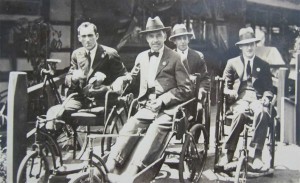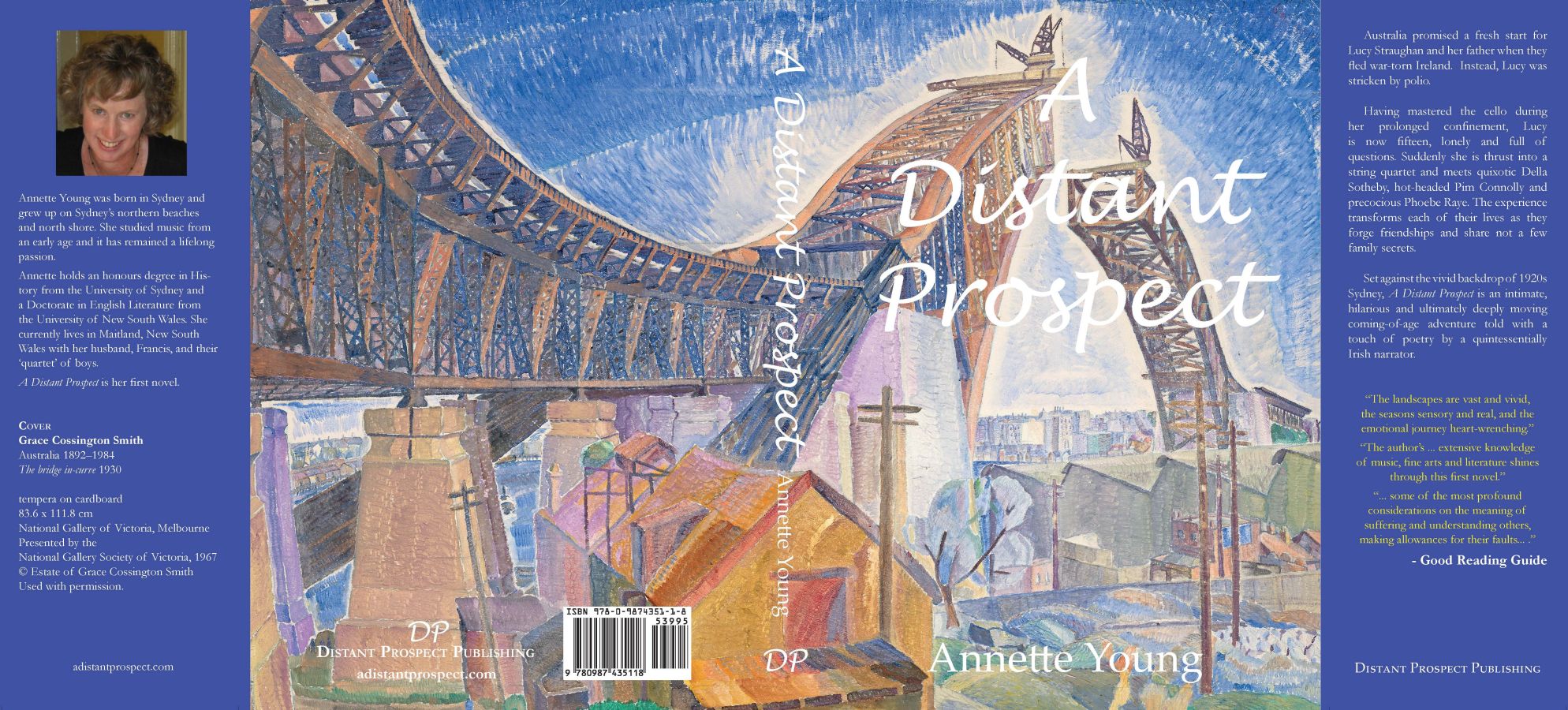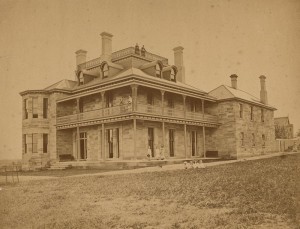
Several veterans in wheelchairs at Graythwaite Convalescent Hospital for Soldiers, North Sydney, in 1919
‘I got mine at Bellicourt. Where’d you get yours?’ he asked me when I shook his hand, and he indicated my legs with a raise of an eyebrow and a nod of his head.
The occasion was the day Mrs Epstein arranged for the quartet to entertain the residents at Greythwaite, the Red Cross hostel for permanently incapacited veterans of the 1914-1918 war. It was a sobering sight.
The recreation room at the hospital was filled with men. Some sat alone, others were accompanied by family or friends employed in cheery condolence. Faces cradling the last vestiges of youth were speared with pain, some pieced together by doctors of doubtful sanity so it appeared. There were lipless apertures for mouths, and what were once noses had been remade into misshapen projections for which ‘nose’ seemed an inappropriate term. There were men who were merely headed torsos, with eyes that questioned the future and retold the horrors and dim joys of the past without the aid of words. Others, sightless, trusted in the touch of comforting hands.
‘Same as the garden party: an afternoon’s light entertainment,’ advised Mrs Epstein. ‘Play everything. Once through will suffice. No repeats.’
(from Chapter 42)
Bringing the joy of music to the sick and invalid is of course a great kindness, and we learn that this generosity is typical of Mrs Epstein.
The man who addressed Lucy so informally has a great role to play in the remainder of the story. Some readers consider him their favourite character of all.
So does Annette!
In 1915, T.A. (later Sir Thomas) Dibbs generously bequeathed his home Graythwaite as ‘a Convalescent Home for our Sick and Wounded Soldiers and Sailors and when not required for that purpose as a Convalescent Home in perpetuity for distressed subjects of the British Empire regardless of Sect or Creed’. … The Red Cross spent £3,000 transforming the grand two-storey home into a suitable place for recuperating patients from the war. Graythwaite Convalescent Hospital for Soldiers was opened on 1 March 1916.
Excerpted from Graythwaite – An ANZAC Hostel, 1916-1980, by Associate Professor Melanie Oppenheimer (whose centenary history of the Australian Red Cross will be published in August 2014).


